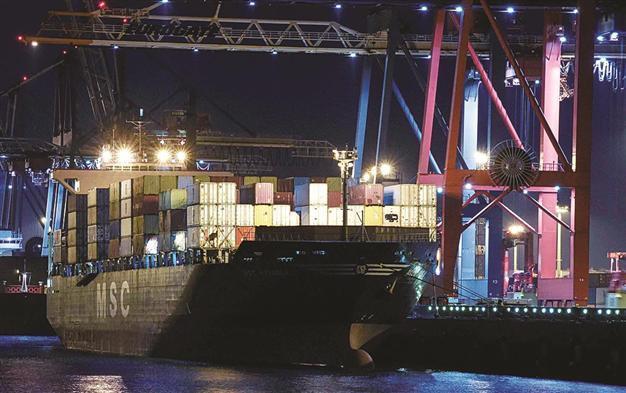World Bank urges Turkey, EU for closer Customs Union talks
ANKARA - Anadolu Agency

Steps to reduce asymmetries in the Customs Union scheme should be taken immediately, Martin Raiser says.
World Bank Turkey Director Martin Raiser has called on Turkey and the EU to cooperate more closely to solve problems in the EU-Turkey Customs Union agreement, which is seen as one of the largest obstacles to Turkey's economic integration with the EU.“While the best solution would be moving forward with the accession negotiations, other practical steps could be taken in the meantime to reduce the impact of asymmetries, such as establishing working groups,” Raiser said.
“Well-managed parallel track negotiations mirroring the main EU negotiations that aim to start and conclude at the same time could help resolve the problem,” added Raiser, speaking at the Turkey-EU Customs Union panel held by the European Union and the Ankara-based think tank Global Research Association, which conducts research on Turkey’s harmonization with EU principles and policies.
The free trade agreement (FTA) between the EU and third parties enables non-EU countries’ goods to enter European markets or Turkish markets via Europe without duty charges, but Turkey’s exports to non-EU countries do not benefit from the same tariff reductions granted to the EU. As a result, Turkey still faces high tariffs and non-tariff barriers.
In his speech, Raiser noted that the EU had concluded many FTAs with countries such as Egypt, South Africa and Algeria, which have themselves refused to conclude FTAs with Turkey.
The lack of any mechanisms that would eliminate this reluctance from third parties to sign agreements is seen by Turkey as the biggest problem with the Customs Union.
“Turkish firms have not received automatic reciprocal access to those markets, while imports from these countries can often enter Turkey duty-free by way of trade deflection via the EU,” Raiser said, acknowledging the situation as an obstacle in bilateral relations between Turkey and the bloc.
He also noted that the proliferation of FTAs between the EU and larger countries, such as the U.S. and Canada, led to vital risks for Turkey.
EU-US deal worries
Turkey has been voicing its concern over a number of FTAs signed by the EU, especially the Transatlantic Trade and Investment Partnership (TTIP) between the EU and the U.S.
Raiser further stated that although Turkey is a candidate for EU membership, its inability to participate in the decision making process on EU Customs Union policies increased the risk of Turkish non-compliance to EU legislation.
Turkish Economy Minister Nihat Zeybekci has repeatedly said that if the EU signs an FTA with major economies, such as the United States, Canada or India, it would greatly harm the Turkish economy.
Turkey is pressing to be included in the TTIP currently being negotiated between the United States and the European Union, which aims to cut tariffs and harmonize regulations in the world’s largest economic blocs.
















